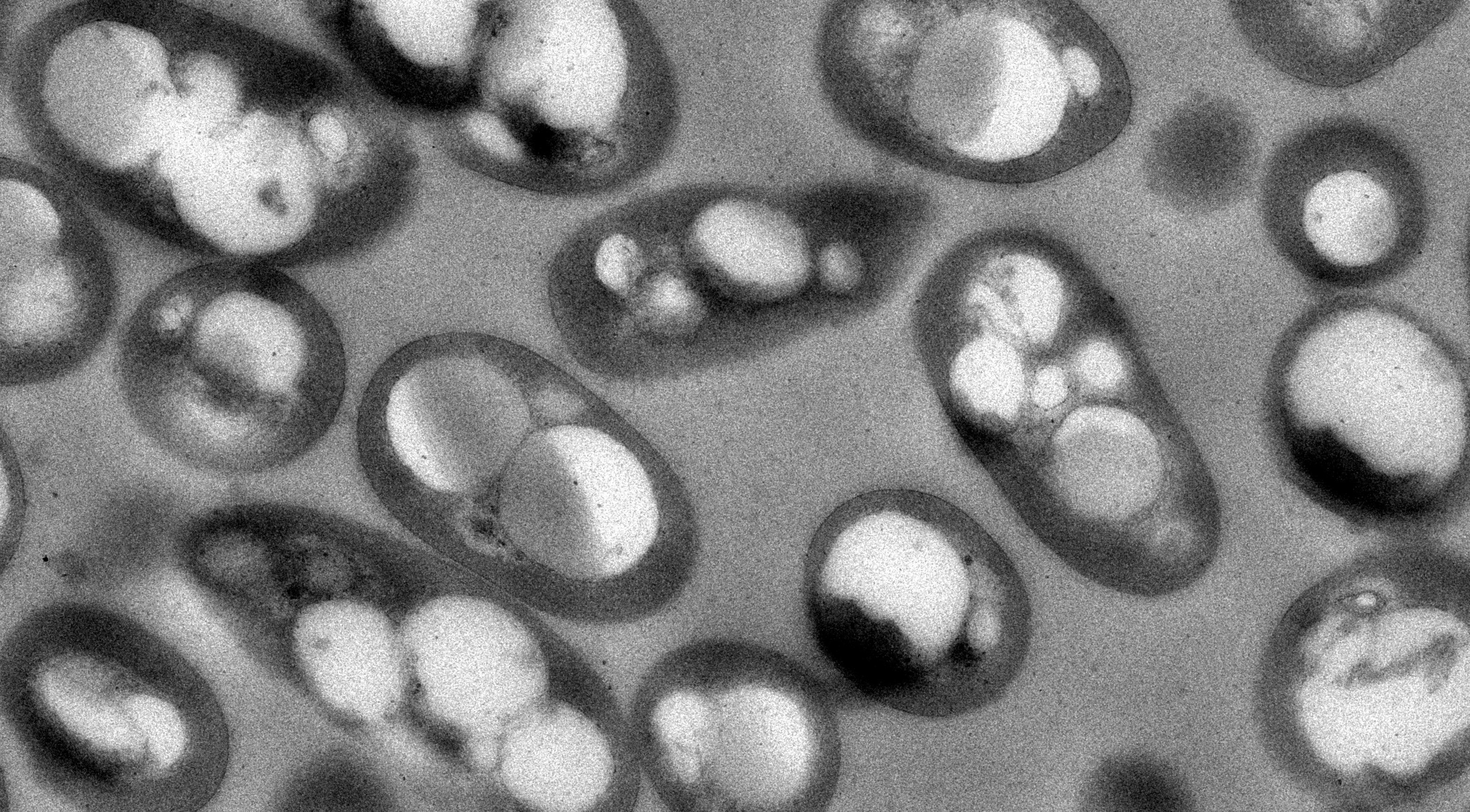
Researchers at the Spanish National Research Council (CSIC) have succeeded in designing, using computational methods and synthetic biology, a set of bacteria with the ability to produce bacterial bioplastics (polyhydroxyalkanoates or PHAs) using recalcitrant materials such as hydrolysates of polyethylene terephthalate (PET), which is one of the most commonly used plastics in containers and bottles, and lignin derivatives, one of the most abundant polymers in nature and which until now has been difficult to valorize. These new strains and the bioprocess implemented as a proof of concept are presented in a paper published in the journal Cell Reports, which shows that they have the potential to become a sustainable tool for the management and revaluation of plastic waste, transforming it into biodegradable or compostable bioplastics.
The study, the result of a collaboration between the Polymer Biotechnology group of the Margarita Salas Biological Research Center (CIB-CSIC), led by Auxiliadora Prieto, and the Systems Biotechnology group of the National Center of Biotechnology (CNB-CSIC) led by Juan Nogales, has implemented a multidisciplinary approach to overcome the numerous scientific-technical challenges that hindered the production of PHAs from raw materials whose chemical structure is not related to that of the bioplastic.
In the context of the current climate crisis and the emerging circular economy, a key objective is to replace current fossil-based plastics with more sustainable and biodegradable alternatives such as PHAs. These compounds, produced by many bacteria, have wide applications in medicine and the packaging sector and are considered a viable alternative to fossil fuel-derived plastics. PHAs are stored as intracellular reserve granules, however, their production presents a significant challenge due to the need to induce nutrient limitation, typically nitrogen, phosphorus, or oxygen, in the culture medium for their production. This represents a major bottleneck in the production of PHAs, as it requires the implementation of complex bioprocesses.
In this work led by the CSIC, these obstacles are largely overcome. In the first instance, PHA production has been optimized by reconfiguring bacterial metabolism according to computational predictions. Finally, using synthetic biology, it has been possible to implement production independent of nutritional constraints, which allows simpler and more efficient bioprocesses to be implemented. In the words of María Manoli, first author of the study and member of the CIB-CSIC, "the bacterial factories developed have shown at laboratory scale the highest production of PHA in relation to cell biomass from PET hydrolysates ever reported". Furthermore, she adds, "The strains developed were able to produce significant amounts of PHA from other residues, such as lignin derivatives, a highly recalcitrant plant polymer."
Taken together, "these results represent a very significant advance in addressing the current global crisis caused by the accumulation of plastic in the environment and show how a multidisciplinary approach, including computational predictions, genetic engineering, and synthetic biology, makes it possible to valorize waste that is difficult to process into sustainable and biodegradable bioplastics," Nogales points out. "This shift in production could not only reduce the carbon footprint of plastics production but also contribute to mitigating the plastic crisis, which costs up to $600 billion each year," he remarks.
This work has resulted in a patent and has been developed in the context of two European Horizon 2020 projects: P4SB, involving 12 institutions and companies from five countries, and MIX-UP, an ongoing project, in collaboration with China, involving 10 European institutions and companies and four Chinese institutions.
Reference: A model-driven approach to upcycling recalcitrant feedstocks in Pseudomonas putida by decoupling PHA production from nutrient limitation. Maria-Tsampika Manoli, Álvaro Gargantilla-Becerra, Carlos del Cerro Sánchez, Virginia Rivero-Buceta, M. Auxiliadora Prieto, Juan Nogales. Cell Reports. 2024. DOI: https://doi.org/10.1016/j.celrep.2024.113979

